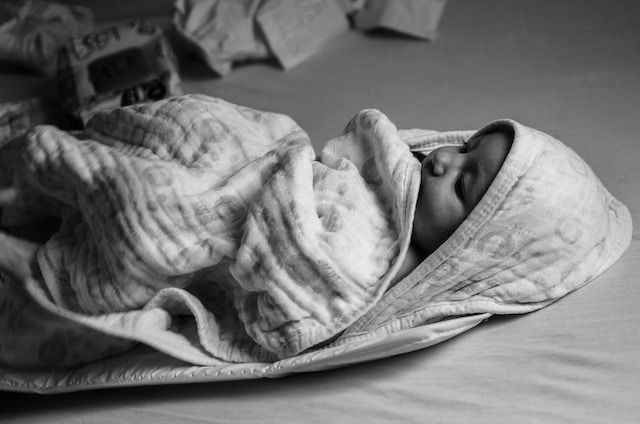Gaza's Brave Mothers: Childbirth Amid Conflict
In Gaza, expectant mothers like Hanan face a harrowing reality: giving birth in the shadow of conflict, with hospitals scarce and danger omnipresent. Their stories of resilience and pain underscore a humanitarian crisis.
In Gaza, the act of childbirth has become a harrowing experience for many women, a testament to resilience and despair in the face of conflict. Hanan's story, a mother giving birth amid Israeli airstrikes, is a poignant example of the extreme conditions under which Palestinian women are forced to bring life into the world. The lack of medical facilities, the fear of bombings, and the scarcity of basic necessities have turned what should be a joyous occasion into a dangerous and traumatic event.
Hanan's labor was not in the safety and sterility of a hospital but in her own home, assisted only by a nurse who happened to be taking shelter in the same building. The situation in Gaza, particularly during times of heightened conflict, renders hospitals inaccessible or unsafe. Many, like Hanan, face the dilemma of risking their lives to seek medical help or enduring childbirth without any professional medical assistance. This dire situation is a consequence of the constant conflict, which has led to the destruction of infrastructure and a severe shortage of medical supplies.
The scenario is bleak: hospitals running out of supplies, frequent power outages, and a lack of basic necessities like food and water. The UN has expressed grave concern over the inability of pregnant women to access healthcare. The number of functioning hospitals has drastically decreased, leaving many women with no choice but to give birth at home, often without any form of pain relief or medical support. This situation is not only physically taxing but also emotionally traumatic, as illustrated by Hanan's experience of trying to suppress her screams of pain to not further distress her already frightened children.
The difficulties faced by pregnant women in Gaza are compounded by the broader challenges of living in a conflict zone. For newborns, particularly those born prematurely or with medical complications, the chances of survival are grim. The lack of proper medical equipment and professional care means that these infants are at a high risk of mortality. Human Rights Watch reported incidents where infants have died due to the inability to provide necessary care during attacks.
 Photo by Flávia Gava
Photo by Flávia Gava
Hanan's story also highlights the resilience of the human spirit. Despite the dire circumstances, the women in her apartment building rallied to support her, using their phone flashlights to light up the room for the delivery. The birth of her son, named Ward, symbolizing flowers, is a beacon of hope in an otherwise dark and difficult situation. It's a poignant reminder of the strength and courage of women who face childbirth in the midst of war and deprivation, and of the preciousness of new life even in the most trying of circumstances.
The situation in Gaza, particularly for pregnant women and newborns, is a humanitarian crisis that demands attention. The difficulties faced by Hanan and many others like her underscore the urgent need for access to medical care and basic necessities, as well as the broader need for a peaceful resolution to the ongoing conflict. The resilience and fortitude of these women are remarkable, but it's a resilience born of necessity, not choice. The international community must not only recognize but also address the dire circumstances under which these women are forced to bring life into the world.
Source: The Guardian





